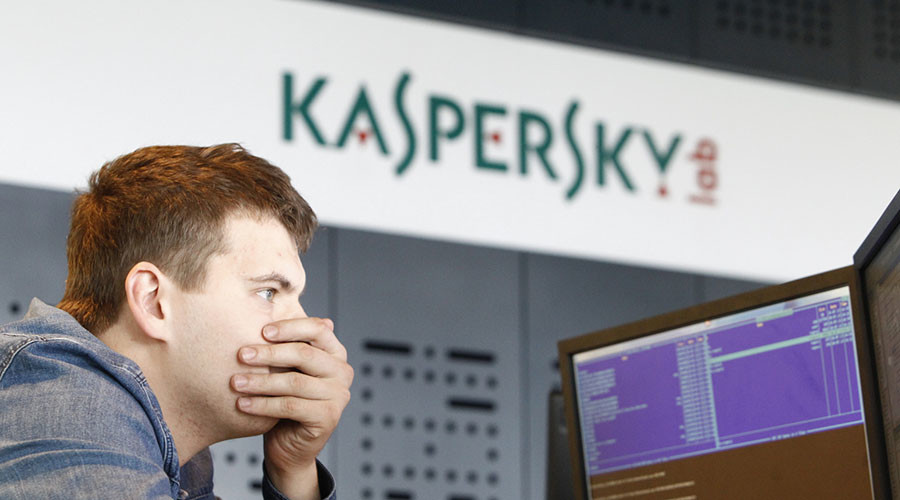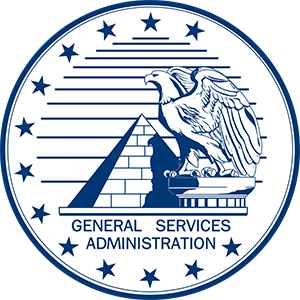The United States has limited government procurement software "Kaspersky Lab"

Photo: Sergei Karpukhin / Reuters
The administration of President Donald Trump has removed the Russian company Kaspersky Lab from two lists of approved suppliers that are used by government agencies for centralized procurement of process equipment. The reasons are possible informal cooperation with the FSB (a loud article recently appeared in Bloomberg ) and concern that LC can be used for unauthorized access to American networks.
Exclusion from the lists is the most concrete action that the administration took after several months of discussion by representatives of US intelligence agencies and lawmakers that the company seems to be closely connected with Russian intelligence agencies, which are also credited with cyber attacks on the US and interference with elections. Although former President Obama was presented with a report on the interference of Russian hackers as early as August 2016, and after that he normally communicated with the Russian leadership. It can be concluded that he did not believe in these reports or did not see any threat in them.
 Now, Kaspersky Lab products have been removed from the supplier lists by the categories “information technology services” and “digital photographic equipment”. Lists of verified providers are the United States General Services Administration (US General Services Administration), that is, the economic division of the administration. A spokeswoman for the agency said that the decision was made “after careful consideration,” given that the agency’s priority is “to guarantee the integrity and security of US government systems and networks.”
Now, Kaspersky Lab products have been removed from the supplier lists by the categories “information technology services” and “digital photographic equipment”. Lists of verified providers are the United States General Services Administration (US General Services Administration), that is, the economic division of the administration. A spokeswoman for the agency said that the decision was made “after careful consideration,” given that the agency’s priority is “to guarantee the integrity and security of US government systems and networks.”
The topic of Russian hackers and cyber attacks on the United States, as well as communications between representatives of the election headquarters of Donald Trump and the president himself, with Russia has become one of the main topics of discussion in the American media and in parliament. Perhaps, Kaspersky Lab simply fell under the hot hand of the American authorities, who do not know what other “retaliatory measures” to take against the Russian Federation.
The Department of General Services does not have the concept of “mandatory certification”, there are the concepts of “recommendation” and “centralized procurement”. So, there will be no more centralized procurement of Kaspersky Lab's programs from the economic management side. Although the Office has remained open the vacancy of the “Windows 7 deployment specialist” with the obligatory knowledge of Kaspersky anti-viruses, which are installed in large numbers on public administration computers. The decision to remove from the list will affect only future contracts, but not past ones.
Antivirus software "LK" is very popular in the United States and other countries, the Russian company for several decades is one of the world leaders in this market, releasing the highest level of software, as evidenced by independent tests. Now about 400 million people around the world use Kaspersky Lab products. Although, as Bloomberg writes, about 200 million are not aware of this (under licensing agreements, Kaspersky Lab’s programs are integrated into hardware, including firewalls and telecommunications equipment). Last year, the company's revenue amounted to $ 633 million, of which $ 374 million fell on the countries of Western Europe and the United States. Such popularity of programs of the Russian company is seriously concerned about the American intelligence services.
Kaspersky Lab rejects suspicion of having links with the FSB, with the government of any country, or its participation in cyber espionage operations. She believes that "she was at the center of the geopolitical struggle, where each side is trying to use it as a pawn in its political game."
Apparently, the sanctions from the US against Russian companies that are suspected of involvement in cyber attacks, will not stop there. In June, the Senate Armed Forces Committee adopted the military budget, from which the article on the purchase of Kaspersky anti-viruses for the army was excluded. On the same days, FBI agents visited the homes of US employees at Kaspersky Lab and talked with them.
Of course, the mentioned article in Bloomberg , which Yevgeny Kaspersky himself called the best example of “bath journalism” with “numerous allegations, misinterpretations and fakes”, added fuel to the fire. He called the article "complete nonsense brewed on the political rage of the day."
This article once again discusses the links between Yevgeny Kaspersky and the FSB. The basis for such rumors was Eugene's correspondence from October 2009 with the company's management, where he discusses cooperation with the FSB. In particular, in the process of protecting against DDoS attacks, LK specialists try to establish the location of attackers and interact with hosters. Moreover, the staff of "LC" themselves participate in such "active countermeasures" against hackers. As Eugene wrote in a letter, the essence of these countermeasures is “better to remain silent.” The project is headed by Igor Chekunov, the main legal consultant of Kaspersky Lab. In addition, in one of the letters, Yevgeny mentions a certain secret project, which they carried out a year ago "at the great request from Lubyanka." The company confirmed the authenticity of the letters.
Responding to questions from readers of Reddit , Kaspersky called the assumptions about relations with the authorities "unfounded conspiracy theories" and "complete nonsense." At the same time, he could not comment on the arrest of the company's top manager Ruslan Stoyanov, who was charged with treason. Kaspersky said that they absolutely have no information on the case. The investigation is conducted in secret, and the company is not attracted to investigative actions.
All Articles